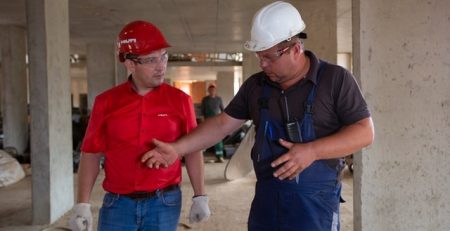How to Recruit Good Employees
Every organisation knows that its biggest asset is its people. Hire the right team, take good care of them, pay them a competitive salary and offer them interesting and rewarding work, and you are more than halfway there when it comes to achieving business success.
This rule applies across most industries, but it is particularly pertinent in the construction sector. The part about taking care of them and offering them a good package is all well and good – the UK is broadly acknowledged as being a benchmark for health and safety practices in the EU and the broader world, and every employer is willing to pay a competitive salary to secure the right people.
This brings us back to the first point: hiring the right staff. Finding those with the appropriate skills, certification and work ethic has never been easy, and Brexit is certainly not going to help matters. Of the three million or so people who are currently employed in the UK construction sector, approximately half a million are from elsewhere in the EU. There is still a lack of clarity regarding how Brexit will affect the freedom of movement on which they rely, but if it causes obstacles, many will not hesitate to simply find work in locations such as Spain or Germany instead.
Regardless of how Brexit plays out, construction firms need a firm strategy for recruiting and retaining the best people.
Define The Role
The first step is one that needs to be taken before the actual recruitment process even begins, and that is to form a clear picture of who is the ideal candidate. Draw up a detailed job scope outlining the skills, experience and competencies needed, the educational level, and any specific certifications.
Job descriptions are important for every role because they form a tangible way to measure performance against defined parameters. Many fear that this is something bad and a way to catch people out or find fault, but in most cases, the opposite applies, and it is a way of confirming that the best employees are meeting or exceeding expectations.
Selling Yourself
As a general observation, employers can be incredibly arrogant. They approach recruitment from the perspective that they are being bountiful and charitable and the best employees will battle one another to win that prized role. In some sectors, that might be true, but it all really comes down to supply and demand.
Recruitment is a two-way street. The candidate must be right for the job, and the employer has to be right for the individual. In construction, the best workers are going to be spoilt for choice, so it is not enough to expect them to come knocking as soon as you advertise that position.
Is your organisation recognised as a great place to work? It is not just about pay and benefits, although these are certainly important. It also relates to brand recognition and reputation. Think of it this way: if a top car design expert had the opportunity to work for Ferrari or Skoda, which one would he be favouring before he even looked at the remuneration package?
Use The Experts
If you need a new client database, you will call in an IT firm, and if the gents’ washrooms are getting a little down at heel, you’ll call in the plumbers because neither of these are your core skills. The same should apply to recruitment. Finding the best people for a role is specialist work, and that’s where people like Adnan Imam come into their own. He serves as a director of Exxell, a company that has a proven track record in matching the right employers with the right staff in the engineering and construction fields.
Trying Them For Size
By following the above steps, you will stand a good chance of looking some candidates in the eye who have the skills, experience and qualifications for the job at hand. How can you determine who is best for the job?
Structured interviews are important, of course, but there needs to be more to the selection process than this. After all, how much time is the worker going to be spending dressed up in a suit and talking to you across a desk?
The best way to establish a candidate’s suitability is by giving them a chance to provide a practical demonstration of what they can do. Adding a practical aspect to the assessment process will not only allow them to showcase their skills, but it will also allow you to see them operate in a more natural environment, breaking down barriers and giving you an insight into the worker behind the suit.












